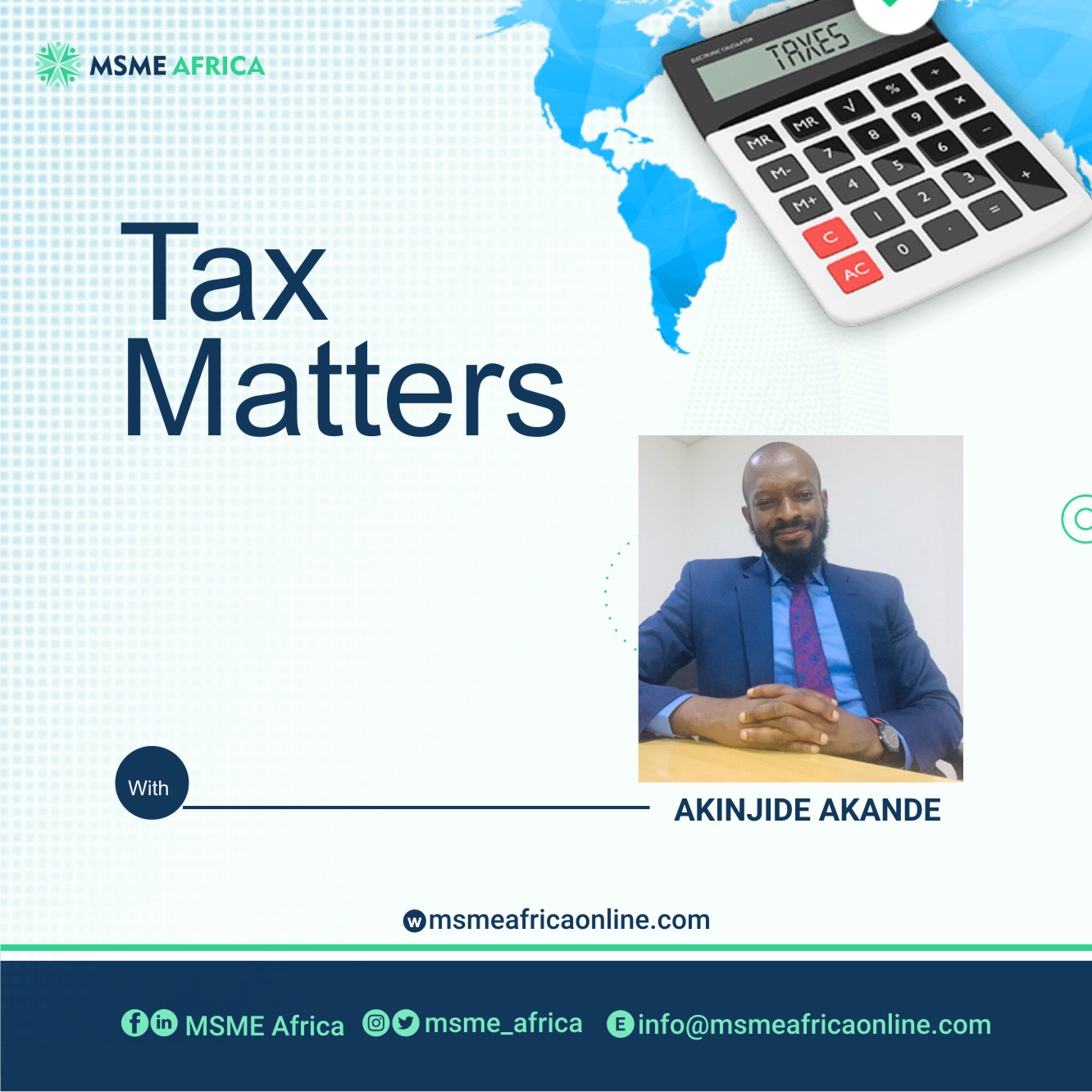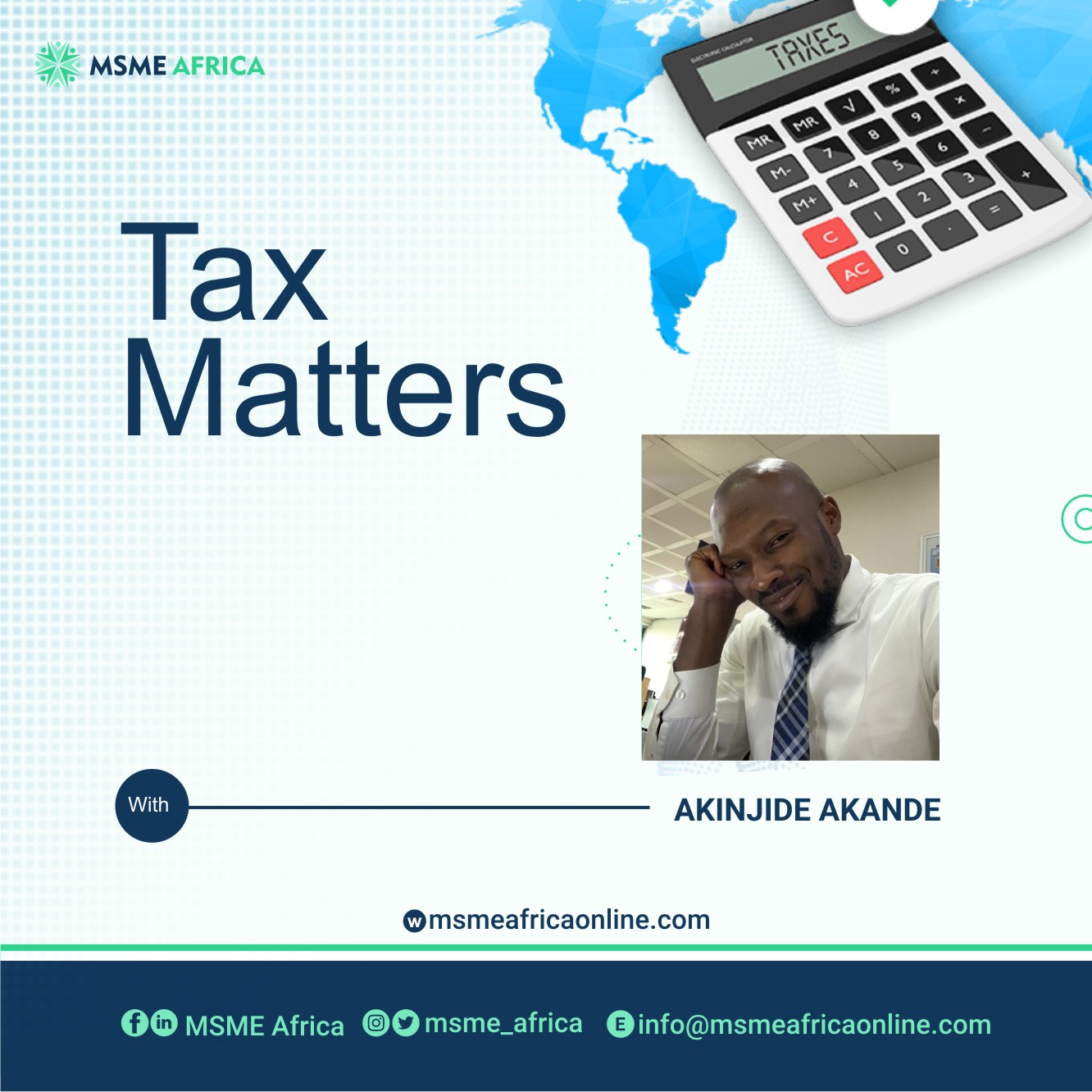For a better and more wholesome understanding of this write-up, you should start reading from here – https://msmeafricaonline.com/what-you-need-to-know-about-vat-and-wht/.
You may also want to read https://msmeafricaonline.com/the-tax-man-does-not-want-you-to-be-compliant/ and https://msmeafricaonline.com/assumptions-that-may-land-you-in-trouble-with-the-tax-authority/.
I am going to continue from where we stopped in the last edition but a quick recap is in order. VAT is a tax on consumption of goods and services while WHT is an advance payment of income tax.
VAT and WHT are not related in any way. Whilst VAT is an indirect tax, WHT (as an advance payment of income tax) is, in effect, a direct tax on earnings/income.
Additional notes
- While VAT is at a flat rate of 7.5% of the invoice value, WHT rates differs on various levels. WHT can be 5%, it can be 10%, it can even be 7.5% in some instances. This depends on (a). The nature of the service (what is being done – the nature of the transaction between two (or more) persons/firms/companies) and/or the legal form or the parties in the transaction. I will break that down in subsequent paragraphs.
- There is a WHT rate table that defines what rate to use, per category of the nature of the transaction and the contracting parties. When a company sells goods or services, let us say company XYZ sells some face masks to company ABC, that service is termed a “Contract of sale” and the rate on the WHT table says the rate to be applied is 5%. In paying XYZ, ABC has to withhold 5% of the total payable to XYZ as WHT and pay over the tax deducted, to the relevant tax authority.
- Now, for tax purposes, there are two major subdivisions of taxpaying entities. The Tax man says a taxpayer can be either a corporate entity or an individual. A corporate entity is a business registered as a body corporate – companies with RC numbers issued by the CAC. Usually tagged LTD, PLC, LTD/GTE or IT. An Individual, as prescribed by the tax laws include a person, an association, a partnership (law firms, accounting firms, estate agencies etc), a sole proprietor, a family business, a trust, a neighborhood union etc. These are mostly registered as a business name. All the Adebayo & Sons, Akinjide & Co….essentially, if your outfit is not registered as a corporate entity with the CAC, the business is termed as an individual under the tax regime in Nigeria.
- The relevant tax authority that is charged with collection of income taxes from taxpayers, depends on the form of business of the respective taxpayers. Note the emphasis on “income taxes”. For income tax (only), the relevant tax authority for corporate entities is the Federal Inland Revenue Service (FIRS), while individuals must account for taxes on their income, to the state internal revenue service (IRS) of the state where they are doing business. For clarity, the income earned by Akinjide & Co, whose office address is in Lagos State, is to be taxed by the Lagos State IRS. The tax from the monthly salary paid to Akinjide as an employee of any company is also payable to the Lagos State IRS, if Akinjide is resident in Lagos State during his employment. In the same vein, XYZ Nigeria Limited is to pay tax from its income to the FIRS for any year, regardless of where the company address is within Nigeria, being a corporate entity.
- It is noteworthy to mention that it is not the size of a company that determines which tax authority its income taxes are to be paid to, but its legal form. It therefore goes without the saying that, since WHT is an advance payment of income tax, the WHT taken by a counterparty is to be paid to the tax authority which the receiver of the income pays income tax to, automatically. The WHT taken from the fees paid to ABC limited is to be paid to the FIRS while the WHT taken from Akinjide & Co is to be paid to the state IRS where Akinjide & Co has its official address.
The next write-up will further delve into the other various instances where the WHT rate to be applied can vary from 5 to 10% and the common pitfalls companies should be wary of. This will be a continuing learning process for us all to ensure these peculiarities are demystified and tax defaults are minimized to the barest minimum.
Akinjide Akande B. Eng. ACA, ACTI is a seasoned tax professional with over 12 years of experience in Tax Compliance, Advisory, Accounting and Automation. He started his career with one of the top 4 accounting firms before proceeding to a leading Tax professional services firm where he gathered knowledge and hands-on experience in Nigerian taxes in the areas of accounting, advisory, compliance, automation, dispute resolution and adjudication. He has served as a tax consultant in various industries including the financial services, manufacturing, IT and FMCG sectors. He has a good grasp of the relevant tax statutes and the practice of tax in Nigeria. He currently works as the tax manager for a leading bank in Nigeria.He can be contacted via email : akinjidayakanday@gmail.com










